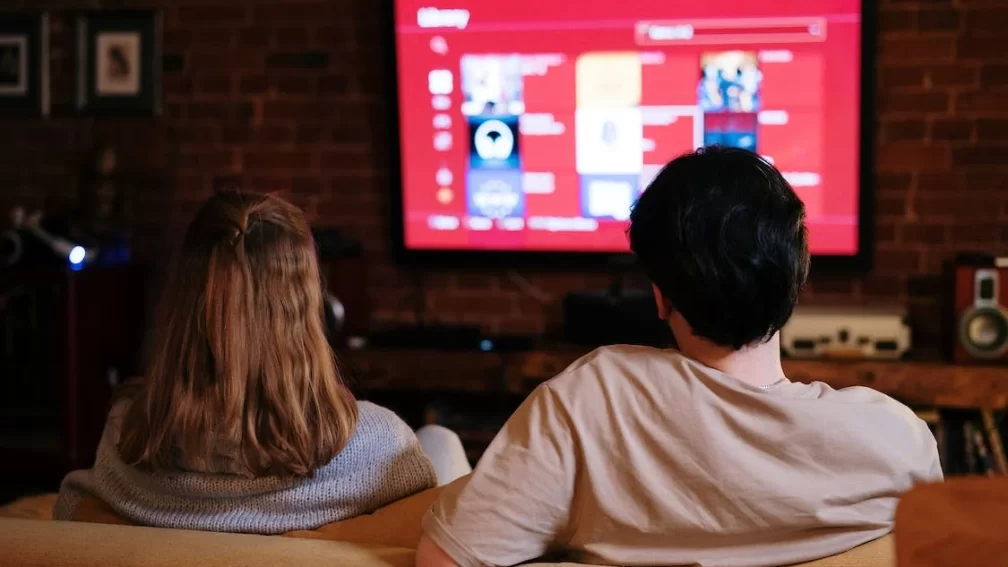Hospitality Tech Transforming In-Room Entertainment In Hotels

In the hospitality industry, customer experience is crucial. But gone are the days when a simple TV and a few cable channels were sufficient to satisfy guests. These days, advanced in-room entertainment solutions have taken center stage.
According to a report by Fact.MR, the smart hospitality sector, is currently valued at USD 37.41 billion. It is expected to reach USD 273.27 billion by 2033. An annualized growth rate of 24.5% is predicted from 2023 to 2033.
The modern traveler expects a personalized, immersive, and technologically advanced entertainment experience during their stay. As a result, the hospitality sector has witnessed cutting-edge solutions that exceed guest expectations.
In this article, we will dive into the transformative landscape of hospitality solutions.
Streaming Platforms

Interactive streaming platforms have revolutionized in-room entertainment. Guests now have access to an array of content across various genres, catering to diverse preferences.
Through partnerships with streaming giants, hotels offer seamless access to guests’ personal accounts, ensuring a home-like experience.
This shift has led to the decline of cable TV, with guests relishing the autonomy to watch what they want. This freedom has elevated guest satisfaction, contributing to a more comfortable and enjoyable stay.
Casting Solutions
Integration of hotel TV casting solutions allows guests to stream content from personal devices to the in-room TV screen. With a seamless and secure connection, guests can share photos, videos, and presentations with ease.
According to Allbridge, customers can personalize their entertainment experience, which enhances the guest experience. Whether it’s reliving memories captured on their smartphones or collaborating on a business presentation, casting solutions get it done.
Smart TVs And More
The integration of smart TVs goes beyond offering streaming services. These devices serve as a hub for information, room controls, and local exploration. Hotels utilize smart technology to enhance guest convenience.
Through IoT-enabled devices, guests can adjust room settings, order room service, and explore local attractions with a few clicks. This combination of technology and hospitality seamlessly merges functionality with luxury, setting a new standard for in-room experiences.
Because IoT devices can interact with one another, hotels can automate some of the time-consuming manual tasks. This enables manual resources to be employed elsewhere. According to Hotel Tech Report, 47% of hotel executives say they are using IoT to reduce operational costs.
Personalized Recommendations
Hotels are tapping into the power of data analytics to curate personalized content recommendations. By analyzing guest preferences and viewing history, algorithms suggest movies, shows, and activities that align with individual tastes.
This tailored approach enhances guest satisfaction and makes their stay more memorable. As data collection and analysis techniques advance, these recommendations are becoming increasingly accurate and intuitive.
Escaping Boundaries With VR And AR
Virtual and augmented reality have stepped into the hospitality industry, offering immersive experiences to guests. The blend of real and virtual worlds introduces an element of wonder and exploration, transforming the way surroundings are perceived.
Hotels provide VR headsets for virtual tours, gaming, and even interactive workouts. AR, on the other hand, enhances the stay by providing information overlays about nearby points of interest.
Seamless Connectivity
In-room entertainment is no longer limited to screens. With the rise of remote work and connectivity needs, hotels are prioritizing high-speed Wi-Fi and advanced connectivity solutions.
This ensures that guests can effortlessly stream their own content, attend virtual meetings, and stay connected without disruptions. Reliable and fast connectivity has become a non-negotiable aspect of the modern guest experience.
Voice Control And AI
Until recently, voice control technology was not widely used in the hotel business. That is starting to change. According to a 2021 Hospitality Net survey, 79% of hotels intend to invest in voice-enabled technologies. The survey also notes that 30% of all service requests at voice-enabled hotels are made via in-room voice assistants.
Voice-controlled assistants and AI technology have found a home in modern hotel rooms. Guests can control entertainment systems, lights, and more using voice commands.
AI-driven chatbots assist with inquiries and provide recommendations, enhancing overall guest satisfaction and engagement. This integration of AI and voice technology transforms the guest-room interaction, making it more responsive.
Ending Note
In the dynamics of the hospitality industry, in-room entertainment has evolved into a realm of personalized and immersive experiences. The staggering growth projected for the smart hospitality sector underscores the importance of adapting to guest preferences.
The shift from traditional cable TV to interactive streaming platforms reflects the demand for autonomy and convenience. Integrating technologies like casting solutions, smart TVs, and IoT-driven services redefines guest convenience while reducing operational costs.
Data-driven personalization and the incorporation of VR, AR, and voice-controlled AI enhance engagement and wonder. As technology continues to advance, hotels must leverage these innovations to craft unforgettable stays where technology seamlessly blends with hospitality.
Read Also:


























Leave A Reply